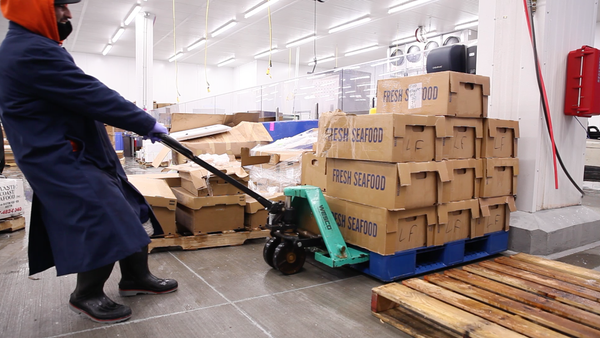This article was published in Scientific American’s former blog network and reflects the views of the author, not necessarily those of Scientific American
Last week the Obama administration announced a final rule requiring traceability for select seafood species. The rule is meant to help prevent illegal, unreported and unregulated (IUU) fishing and seafood fraud by requiring certain at-risk imported fish to be traced from the boat or farm to the U.S. border.
As I’ve written about before, the seafood supply chain is complex and opaque. Lack of transparency and traceability provides opportunities for bad actors to mislabel fish in order to cheat buyers into paying higher prices, hide nefarious origins or obscure potential health risks. I helped write a report for the conservation group Oceana released earlier this year that highlighted the global scope of seafood fraud and mislabeling. The review of scientific studies, government documents and journalistic reports comprised 25,000 samples of seafood from all across the world. Of those, one in five were mislabeled. This mislabeling occurred at every sector of the seafood supply chain: from the boat, to the processors to the retail level.
Not only does mislabeling cheat consumers and undermine honest fishermen and businesses, but it also allows for the illegal plundering of our marine resources—a serious threat to ocean abundance and biodiversity.
On supporting science journalism
If you're enjoying this article, consider supporting our award-winning journalism by subscribing. By purchasing a subscription you are helping to ensure the future of impactful stories about the discoveries and ideas shaping our world today.
With this new rule, the U.S. is one step closer to having all its seafood come from verifiable sources.
Oceana’s seafood fraud campaign director Beth Lowell, was instrumental in pushing for traceability, which she called a landmark achievement:
“For the first time ever, some imported seafood will now be held to the same standards as domestically caught fish, helping to level the playing field for American fishermen and reducing the risk facing U.S. consumers.
But the problem doesn’t stop here. We must continue to build on this important work and expand seafood traceability to include all seafood sold in the U.S. and extend it throughout the entire supply chain,” Lowell said.
It’s not a radical idea to insist that we know where our seafood is coming from, and it’s becoming more important as reports emerge of slave labor and human trafficking within the global seafood supply chain. Because of this, as well as health and environmental concerns, consumers are increasingly demanding traceability. As part of my work for Oceana’s seafood fraud campaign I met with business leaders throughout the seafood industry who are already meeting that demand. Everyone I spoke with described advantages: streamlining of the shipping process, reduced costs, building consumer trust, and peace of mind that they were not contributing to human rights abuses or environmental degradation.
Note: This video was produced before the final rule was released. Oceana wanted to highlight industry support for full-chain traceability. The call to action at the end refers to the rule as it had been proposed, not the final rule.
I’ve used this quote before, but I’m repeating it here because I think it’s a great point, especially coming from someone in the seafood industry. When I spoke to MJ Gimbar, the fishmonger at Black Restaurant Group in Washington, DC, he said:
“If someone is having issues with traceability, most of the time they’re doing something wrong that they shouldn’t be doing. I don’t think anyone in the industry should be against traceability . . . because it levels the playing field. I think if you’re doing the right things you should want to show that. If you’re doing the wrong things, you probably don’t want to show that, and that’s not people that we want to do business with anyway.”
Now, with this final rule, it will be harder for those bad actors to do those bad things, the oceans will be healthier, and consumers will be safer. It’s a great development and it’s due in large part to a lot of hard work by the folks at Oceana.
The timing of this is fitting, because sadly, this will be my last post for Food Matters. After two years, Scientific American is pulling the plug on this lil’ blog. So while I’m sad to say goodbye to this platform that has been so rewarding, I’m glad that my final words on this blog are about a success that has been in the works for a long time. Congrats, Oceana Seafood Fraud Team!
Thanks to Scientific American for giving me the opportunity to write here, and thanks to my awesome and inspiring co-bloggers, including the folks from the beginning: Layla Eplett, Kevin Bonham, Kathleen Raven, See Arr Oh, Julianne Wyrick, and Pamela Ronald.
So long, and thanks for all the fish stories!
